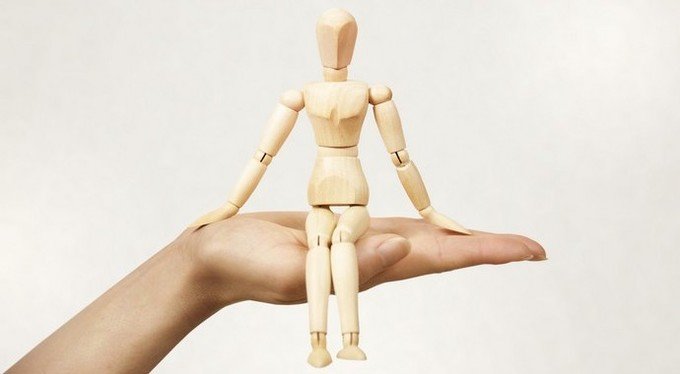How to understand that you are manipulated, playing on your kindness, upbringing, the desire to please others? Psychologist Nikolai Molchanov - about how to learn to recognize the basic manipulative traps and avoid them.
Basic Ideas
1.Techniques of social influence are actively used by sellers, marketers and advertisers. They encourage us to commit ill-considered actions (first of all, purchases).
2.Most often, we do not realize what exactly made us take the step, which we now regret.
3.Having learned to recognize traps placed by manipulators, you can pass them.

I have seen many successful companies that have spent a lot of resources developing strategies to influence consumers. But people who have finished courses of "professional buyers", meanwhile did not meet. Forces are clearly not equal. I propose to understand how we are manipulated, pushing for the fulfillment of quick and impulsive actions.
1.Attractive appearance
If we like the way a person looks, we automatically begin to attribute positive features to it: for example, honesty, reliability, a sense of humor. It is especially active at the dating stage: I want to draw the most detailed portrait, the information is not enough, we have to build hypotheses. And to change the first impression is extremely difficult - even if you have such a chance.
Harvard psychologists put an experiment: one group of students studied with the professor throughout the semester, the other saw him for 10 seconds - in the video without sound. The opinion of the students from the teacher's teacher coincided with the first impression of the subjects who watched the video. This proves once again: we are what we look like. Or at least what we wear.
Cute or even beautiful can be not only a person, but also a company website or beauty salon. This is certainly an argument in their favor, but it must be decisive only if the appearance is the only thing you need to make a decision.
2.Principle of deficiency
If it is difficult or impossible to get the desired, it only increases its value for us. A Hermès bag can cost several thousand pounds and can be delivered only two years after the order. And this is not because Hermès production facilities do not allow the production of the right number of bags.
Remember: grabbing for the first sentence, you can miss the best option
Another example: at one time the population of Europe tried to accustom to potatoes. Only when the peasants were told that the potatoes are state property, and the fields are fenced and taken under protection, they began to steal potatoes immediately, and to grow and grow.
With the use of deficit technology, we face on the Internet every day. The hotel booking site insistently warns that there are only a few numbers left, the counter counts down the time until the end of the action. The deficit principle drives us into a state of mild panic: we must take it, or I will not be in time! - and pushes impulsive purchases. To avoid this, remember that, grabbing for the first sentence, you can miss the best option.

3.Prior consent
As a rule, we try to be consistent: if they announced something in public, then it will be very difficult to behave contrary to what has been said, even after some time.
Therefore, we are usually asked to make a small step to meet and agree with something insignificant, and then go to the main request. Simply asking for money to protect the environment, there is a great risk of getting rejected. But what if you ask first: "Is the environment important for you?" The person who answered "yes" will find it difficult to refuse the donation.
Picking up things or leaving personal mail, you seem to take no obligations, but in the future it can be used to pressure you. Once in a similar situation, remember: even if you have given your prior consent, you can always refuse.
4.The ability to choose the "lesser of evils"
It turns out that the initial refusal can be an incentive for further agreement. This is how the "lesser evil" principle works. First we are offered to buy something expensive, and when we refuse, we make a more moderate offer.
Imagine the situation: you are offered to buy expensive equipment. You refuse. The seller: "Maybe at least take the batteries for the console? After all, they are always in short supply ... "The probability that, having refused the first time, you will agree to the second, is quite large. You feel that you yielded without insisting on persuasion. You have a need to thank, having bought something in return.
5.Emphasis on similarity
We like people who are similar to us, as well as those who share our interests and views. Unconsciously, we tend to trust people in our own circle. Strangers, we refer to this circle for the most accessible for evaluation parameter - clothing.
Scammers have long enjoyed this. Perhaps you've come across a situation where a properly dressed person or a married couple ask for money on the street, citing emergency circumstances. Their chances of getting money for "travel" are much higher than for a real homeless person.
It brings together not only the appearance, but also the presence of cars of one brand or participation in the same community of the social network. But no matter how similar the seller to you, remember: you will not have to live with him, but with the thing that you buy from him.

6.The bet on authority
We trust what influential people say. In this case, often the expert becomes someone who has the necessary attributes for this.
Within the framework of the experiment, the same actor was represented by three different groups of people as a "student", "laboratory assistant" and "professor" from Oxford. After the participants were asked to evaluate its growth. The "professor" seemed to the subjects 12 centimeters taller than the "student". If the status of the expert deceives our vision, he will deceive and think.
Be sure to check the real status of the expert, especially if this is an important issue for you.
7.Dependence on social acceptance
We like when our actions are approved, and preferences are shared by others. That's why we'll rather look into a crowded restaurant than empty.
To get the necessary effect, it is enough to demonstrate that the point of view is popular in society. That's why on most sites you can find the section "Our grateful customers".
Social approval can induce us even to wrongdoing. The famous American psychologist Robert Chaldini once suggested installing a prohibitive inscription in the park: "Many visitors take with them to their memory pieces of fossilized trees, destroying nature ...". And the number of thefts almost quadrupled! Trying to denote the wrongness of theft, this inscription rather "legalized" it, because, as it turned out, "everyone does that".
Often what we consider to be the opinion of the majority is simply a fear of expressing one's opinion and becoming the first
Another example of the use of this technique is voice-over laughing in serials. Despite the fact that almost all of it annoys, according to the results of numerous studies, this laughter is needed: so jokes really start to seem more ridiculous.
It is important to understand: often what we consider to be the opinion of the majority is simply the fear of expressing one's opinion and becoming the first. Do you know the situation when no one dares to object to the meeting, and only when the bravest expresses the opposite point of view do the others begin to support it? Remember your craving for social approval and do not go against yourself and your desires.
8.A game of gratitude
Agree, when you get even a small gift, you most likely want to thank the donor (and it does not matter if you feel warm feelings for him and whether you need a gift as such).
This is how the whole industry of promo actions, excursions to factories and tastings is built: after receiving a gift, a person begins to think (albeit without realizing it) that he must buy something in return.
If you feel that, due to your character, even a small souvenir will force you to reciprocate and disproportionate gratitude in the form of buying something unnecessary, do not take it.

9.Using arguments
A social psychologist and author of the theory of awareness, Helene Langer, conducted an experiment with library visitors standing in line for the copier. 94% of the subjects agreed to skip ahead, when they heard: "I have five pages. Could you miss me, because I'm in a hurry? "It is interesting that the cause of the agreement was not a small amount of copies. To the request "I have five pages - could you miss me?" Only 60% of the responders responded. The whole point is in the presence of the phrase "because".
In fact, we do not care what the reasons are: only the fact that we know about their presence is important to the brain. If the request is not burdensome, then, hearing "because", we do not waste time analyzing the content of the argument, but immediately ready to make concessions.
Be careful: are the arguments put forward weighty, or are they just masked pacifiers?
10.Compliments
Numerous studies prove that the compliment said at the right time increases the chances of buying. In the situation of choice, we often experience uncertainty: what is better to take - this or that? Throw can end with the fact that we just leave the store. But if at that moment the consultant praises our choice and sense of style, concentrating our attention on one thing, then, most likely, we will leave with the purchase.
We are ruled by a thirst for compliments. If you came to work with a new haircut, then, most likely, remember all those who praised your hair (even those who limited themselves to the phrase: "Oh, great haircut").
In the case of a compliment, it is best to understand the purpose for which it was made, and then simply continue to enjoy it.
Fortunately, from the tricks listed above, we are most often protected by the fact that most people and companies use them with errors that reduce our desire to make concessions. Manipulations based on social norms are very cheap to use, but learning how to apply them correctly is difficult.
Now that you are familiar with the basic manipulative traps, it remains only to learn to notice them in time and avoid them.

awesome